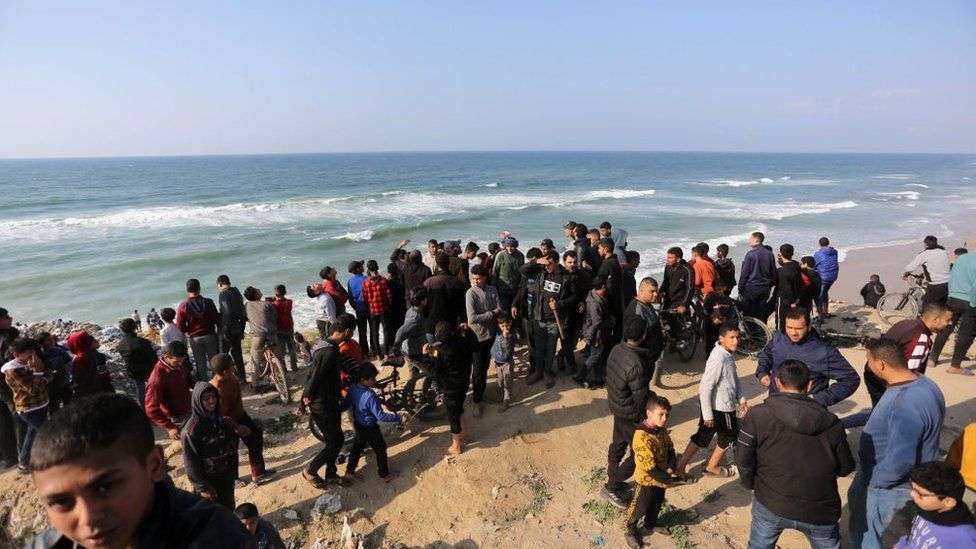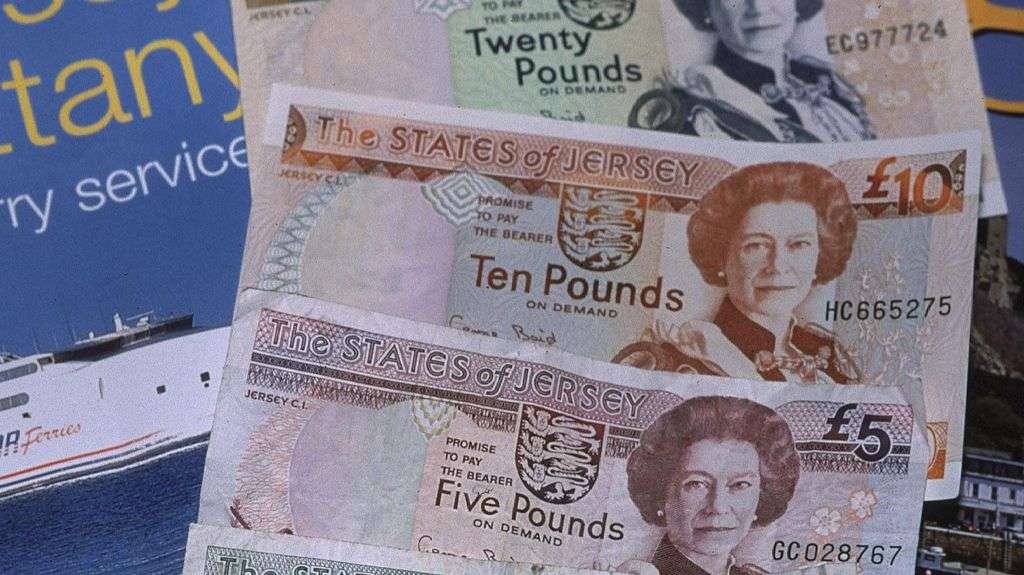A maritime aid corridor to Gaza could begin operating this weekend with a test shipment leaving Cyprus as early as Friday, Ursula von der Leyen says.
The European Commission chief's announcement comes after the US said it would set up a temporary port in Gaza.
The UN says a quarter of Gaza's population is on the brink of famine and children are starving to death.
Israel denies impeding aid and accuses aid organisations of failing to distribute it.
Speaking in Cyprus, Ms von der Leyen said Gaza was "facing a humanitarian catastrophe" and the sea corridor would enable the delivery of large quantities of additional aid.
The pilot shipment of aid would come in coordination with the United Arab Emirates and the World Central Kitchen aid organisation, she said.
On Thursday Mr Biden said the US military would construct a pier to transport supplies from ships at sea to the shore, but US officials said it would take "a number of weeks" to set up.
The operation - which he said would not include US troops on the ground in Gaza - would enable large ships to deliver food, water, medicine and temporary shelters. Initial shipments would arrive via Cyprus, where Israeli security inspections will take place.
Mr Biden said the pier would enable a "massive difference" in the amount of aid reaching Gaza but added that Israel must "do its part" by allowing more aid to enter into the territory and to "ensure that humanitarian workers aren't caught in the crossfire".
"Humanitarian assistance cannot be a secondary consideration or a bargaining chip," he said.
A joint statement from the European Commission, Cyprus, the US, UK and UAE said operating a sea corridor would be "complex" and they would continue to press Israel to expand delivery of aid by road, "insisting that it facilitate more routes and open additional crossings".
"Protecting civilian lives is a key element of international humanitarian law that must be respected," the statement said.
'My son Ali has already died': Father's plea for Gaza's starving children
Why food airdrops into Gaza are controversial
Aid lorries have been entering the south of Gaza through the Egyptian-controlled Rafah crossing and the Israeli-controlled Kerem Shalom. But the north, which was the focus of the first phase of the Israeli ground offensive, has been largely cut off from assistance in recent months.
An estimated 300,000 Palestinians are living there with little food or clean water.
Last week more than 100 people were killed trying to reach an aid convoy amid the growing desperation. Palestinians said most were shot by Israeli troops. The Israeli military, which was overseeing the private aid deliveries, said most were killed in a stampede.
The US and other nations have resorted to dropping aid in by air - but humanitarian organisations say that method is a last resort and cannot meet the soaring need.
Israel's military launched an air and ground campaign in Gaza after Hamas's attacks on Israel on 7 October, in which about 1,200 people were killed and 253 others were taken hostage.
More than 30,800 people have been killed in Gaza since then, the territory's Hamas-run health ministry says.








